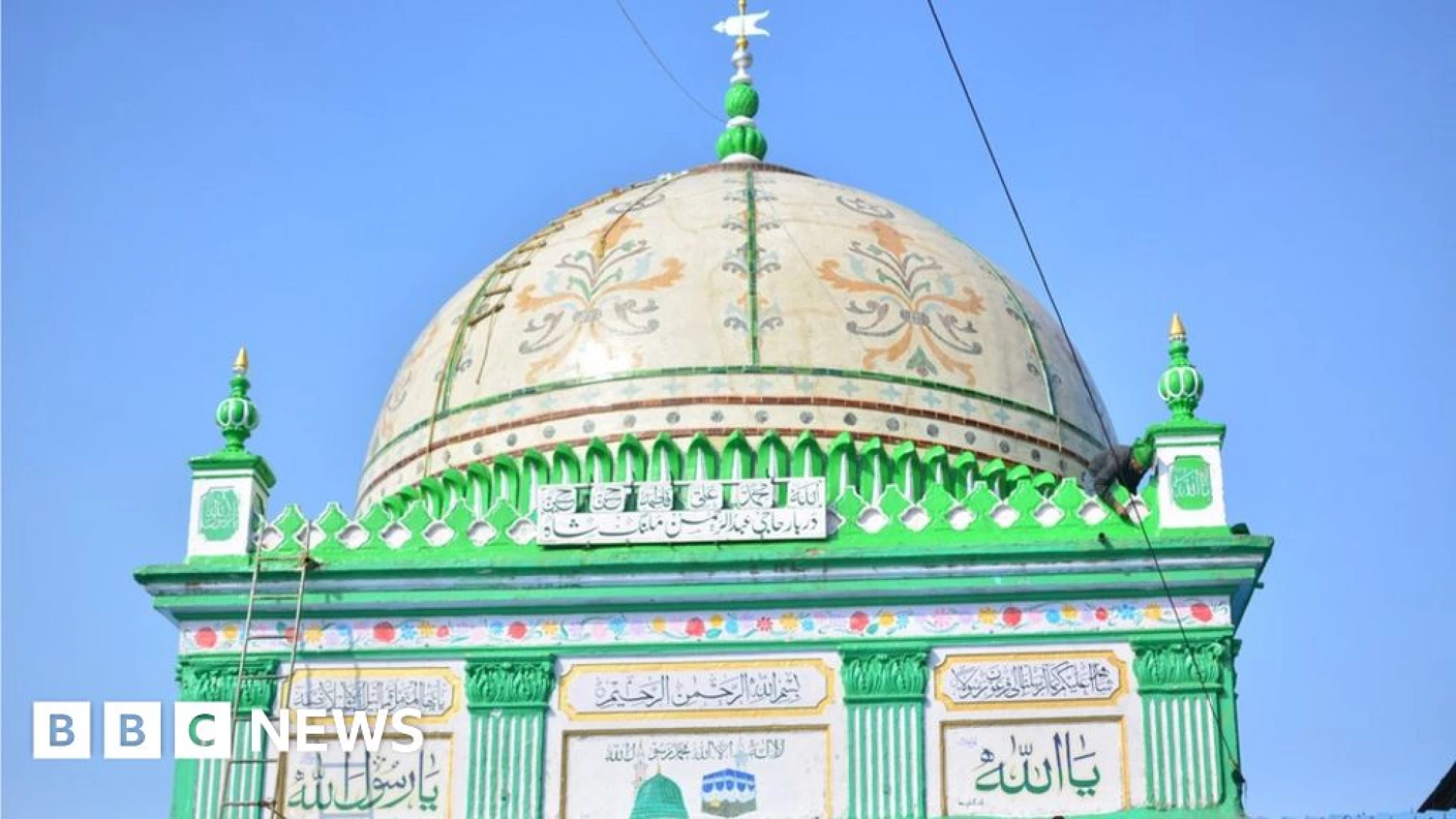Haji Malang: The Sufi shrine caught up in a religious row in Mumbai - BBC News

Both Hindus and Muslims visit the Haji Malang shrine in Mumbai - but a controversy has shaken some devotees.
15 hours agoShareclose panelShare pageCopy linkAbout sharingImage caption, The Haji Malang dargah is said to be more than 700 years oldA Sufi shrine frequented by Indians of all faiths made headlines recently after a top political leader said that he wanted to "liberate" it for just Hindus. The BBC's Cherylann Mollan visited to understand what the controversy was about.
The ascent is no easy feat, with some 1,500 rock-cut steps separating the devout from their destination: a Sufi saint's tomb that has become a seat of faith, legend and disputed history.
The Haji Malang dargah (shrine), sitting on a hill on the outskirts of Mumbai in the western state of Maharashtra, is said to house the tomb of an Arab missionary who came to India more than 700 years ago. Like many other Sufi shrines across India, the dargah is seen as a symbol of assimilation and tolerance, despite being at the centre of a religious dispute.
When I visited, both Hindus and Muslims were offering flowers and a chadar - a piece of cloth offered as a symbol of respect in Sufi traditions - at the saint's tomb. The belief is that any wish asked for with a "pure heart" will be granted.
The shrine's managing board mirrors this sense of respectful co-existence - while two of its trustees are Muslims, its hereditary custodians are from a Hindu Brahmin family.
https://www.bbc.co.uk/news/world-asia-india-68090708?at_medium=RSS&at_campaign=KARANGA
Rating: 5